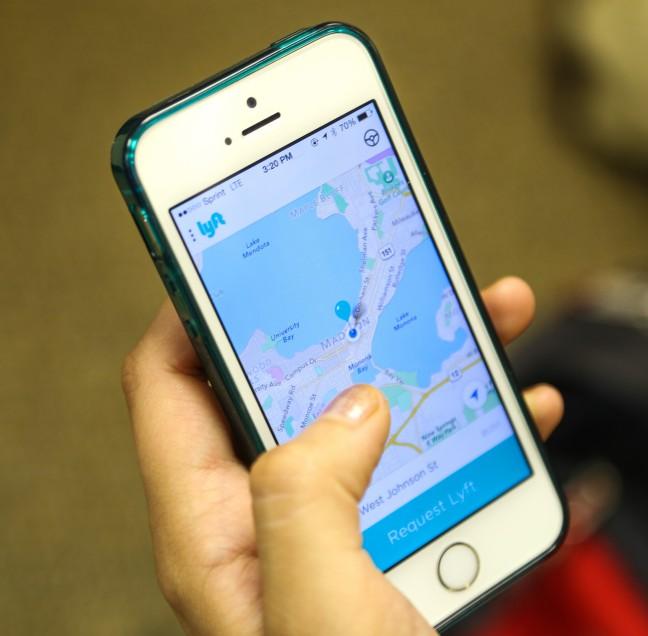In an effort to make transportation network companies, such as Uber and Lyft, safer for riders, Justin La Plante, a former Madison taxi driver created Ride Safe World, a website that gives riders information on whether their driver has a criminal record.
Ride Safe World is a non-profit organization dedicated to transportation safety and transportation labor ethics. The safety of the customers, drivers and general public is La Plante’s top priority, he said.
Currently, there are two proposed senate bills that would hold transportation network companies, such as Uber and Lyft to the same standard as traditional transportation companies.
Senate bills 181 and 182, proposed by Sen. Chris Larson, D-Milwaukee, would hold TNC’s, such as Uber and Lyft, to the same standard as PTC’s, such as taxi and limousines.
SB 181 stated cities with a population of 10,000 or more people are permitted to enforce local regulations on TNCs, their drivers and the drivers’ vehicles.
The second bill would require TNC’s to establish a complaint procedure for discriminatory or fraudulent behavior toward passengers.
Larson said TNC’s lack proper insurance, exploit gig-economy drivers and doesn’t give security for passengers by having little-to-no background checks of the drivers.
PTC’s in attendance included many taxi drivers from the midwest who vehemently voiced their support of these bills to add more transparency to the TNC industry.
La Plante’s website gives transparency to ridesharing companies, he said.
The website allows the general public to enter a ride share license plate number which then informs the user if their driver has a criminal background and if the vehicle is properly insured, La Plante said.
It does not give detailed information about the driver. The site also does not report plate numbers, rather it only looks them up, La Plante said.
“We only list felons if they committed dangerous crimes involving assault or major traffic violations that would have definitely barred them from obtaining employment with any vetted commercial transportation provider,” La Plante said.
The website gathers its information on Records Finder, a public records search site, and through research and knowledge from experience in the industry, La Plante said.
According to their findings, in the past two years, Ride Safe World has found 144 Uber and Lyft drivers that either have criminal backgrounds, do not have verifiable insurance coverage or both.
Since April, La Plante said they have found five TNC drivers that had committed battery with other charges like DUIs and breaking-and-entering. Five sex offenders were also found in Madison.
La Plante said uninsured vehicles were also very common in the TNC industry and that companies, such as Uber, stipulate this in their terms and agreements.
Under Section 6 of Uber’s U.S. terms of use under limitation of liability, Uber is not responsible for any of their driver’s damages including lost profits, lost data, personal injury or property damage resulting from the use of the services, regardless of the negligence of Uber.
“This has lead to numerous incidents of uninsured rideshare and TNC wrecks in the state and accident incidentals being forced on the general tax-paying public of Wisconsin,” La Plante said.
Mike Hartmann, president of Wisconsin Limo Association, stressed TNCs created a large disadvantage to their company and others like it as they are not taxed and do not require full-time insurance, which is expensive, he said.
Public transportation companies, such as taxis, cost more, but it is because they are paying massive amounts of money to insurance companies to cover all possible scenarios, La Plante said.
“Another point that we try to make is that we are not in the business of destroying the idea of rideshares like Uber or Lyft,” La Plante said. “In reality, we also ask for looser regulations on taxis while getting common sense legislation for rideshares.”


